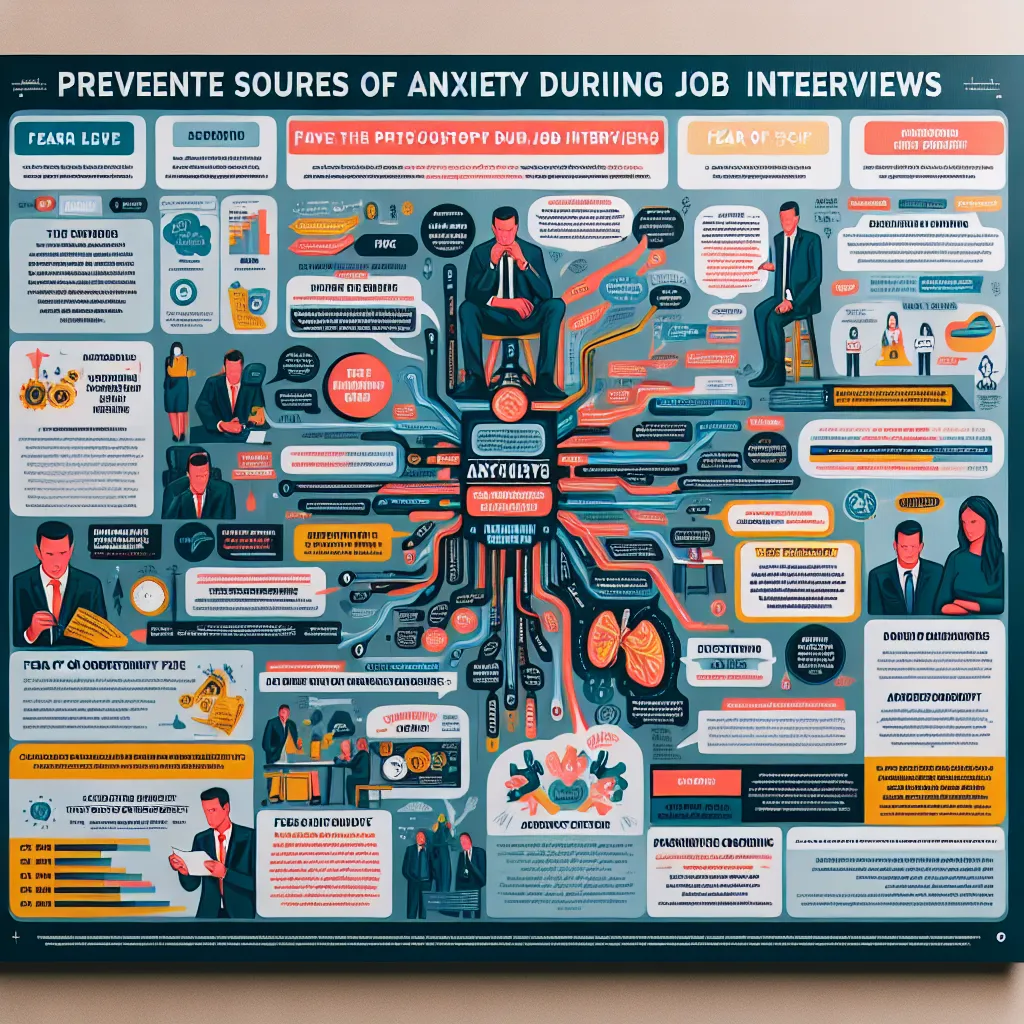Interviews can be nerve-wracking experiences, especially when your dream job is on the line. The pressure to perform well and make a lasting impression can often lead to stress and anxiety. However, with the right strategies and mindset, you can effectively manage interview stress and showcase your best self. In this comprehensive guide, we’ll explore expert tips on How To Handle Stress During An Interview, helping you boost your confidence and increase your chances of success.
Understanding Interview Stress
Interview stress is a common phenomenon that affects many job seekers. It’s crucial to recognize that feeling nervous is normal and even expected by interviewers. Understanding the root causes of your stress can help you better manage it.
Common Causes of Interview Stress
- Fear of the unknown
- Pressure to perform well
- Worries about qualifications
- Past negative interview experiences
- High stakes (e.g., dream job opportunity)
Recognizing these factors can help you develop targeted strategies to address your specific stress triggers.
 Causes of Interview Stress
Causes of Interview Stress
Effective Strategies to Handle Interview Stress
1. Preparation is Key
One of the most effective ways to reduce interview stress is thorough preparation. When you’re well-prepared, you’ll feel more confident and in control.
- Research the company and role extensively
- Practice common interview questions
- Prepare relevant examples and anecdotes
- Review your resume and application materials
2. Mindfulness and Relaxation Techniques
Incorporating mindfulness and relaxation techniques into your pre-interview routine can significantly reduce stress levels.
- Deep breathing exercises
- Progressive muscle relaxation
- Visualization of a successful interview
- Short meditation sessions
Try practicing these techniques in the days leading up to your interview to maximize their effectiveness.
3. Positive Self-Talk and Affirmations
The way you talk to yourself can greatly impact your stress levels and overall performance. Replace negative thoughts with positive affirmations:
- “I am well-prepared and qualified for this position.”
- “I have valuable skills and experiences to offer.”
- “I am calm, confident, and capable.”
Repeat these affirmations to yourself before and during the interview to boost your confidence.
4. Arrive Early and Get Centered
Arriving at the interview location with plenty of time to spare can help you feel more relaxed and composed.
- Plan your route and transportation in advance
- Aim to arrive 15-20 minutes early
- Use the extra time to calm your nerves and review your notes
5. Focus on Your Body Language
Your body language can not only influence how others perceive you but also how you feel about yourself. Practice confident body language to reduce stress and project assurance:
- Maintain good posture
- Make appropriate eye contact
- Smile genuinely
- Use open gestures
6. Reframe Your Perspective
Instead of viewing the interview as a high-pressure test, try reframing it as a conversation or an opportunity to learn about the company and role.
- Focus on building rapport with the interviewer
- Ask thoughtful questions about the position and organization
- View it as a two-way assessment of fit
This shift in perspective can help alleviate stress and create a more positive interview experience.
Handling Difficult Situations During the Interview
Even with thorough preparation, you may encounter challenging moments during the interview. Here are some strategies to handle common stressful situations:
1. Dealing with Tough Questions
If you’re faced with a difficult question:
- Take a deep breath and pause before responding
- It’s okay to ask for clarification if needed
- If you’re unsure, be honest and explain how you would find the answer
2. Managing Mind Blanks
If you suddenly draw a blank:
- Stay calm and take a moment to collect your thoughts
- Politely ask the interviewer to repeat or rephrase the question
- If necessary, offer to come back to the question later
3. Addressing Nervousness
If you’re visibly nervous:
- Acknowledge it briefly (e.g., “I apologize, I’m a bit nervous as I’m very excited about this opportunity”)
- Take a deep breath and continue with confidence
Remember, it’s normal to feel some level of nervousness, and interviewers often appreciate candidates who can manage and overcome their anxiety.
Follow-Up Questions and Sample Answers
To help you prepare further, here are some common follow-up questions related to stress management in interviews, along with sample answers:
-
Q: How do you typically handle stress in high-pressure situations?
A: “I find that preparation is key to managing stress. I create detailed to-do lists, prioritize tasks, and break large projects into smaller, manageable steps. Additionally, I practice mindfulness techniques like deep breathing to stay calm and focused.” -
Q: Can you describe a time when you had to perform under significant pressure?
A: “In my previous role, we had a major client presentation with very short notice. I organized the team, delegated tasks efficiently, and stayed late to ensure everything was perfect. By staying calm and focused, we delivered an excellent presentation and secured the client.” -
Q: How do you maintain composure when things don’t go as planned?
A: “I try to maintain perspective and focus on solutions rather than problems. If something unexpected occurs, I take a moment to assess the situation, consider alternative approaches, and adapt quickly. This mindset helps me stay composed and productive.” -
Q: What strategies do you use to manage multiple deadlines or competing priorities?
A: “I use a combination of digital tools and traditional methods to stay organized. I prioritize tasks based on urgency and importance, communicate clearly with team members about timelines, and am not afraid to ask for help or clarification when needed.” -
Q: How do you handle criticism or feedback in a professional setting?
A: “I view constructive feedback as an opportunity for growth. I listen actively, ask clarifying questions if needed, and thank the person for their input. Then, I reflect on how I can implement the feedback to improve my performance.”
These sample answers demonstrate a proactive approach to stress management and showcase valuable soft skills that employers often seek.
Common Mistakes to Avoid
When dealing with interview stress, be mindful of these common pitfalls:
- Over-preparing to the point of sounding rehearsed
- Neglecting self-care (sleep, nutrition) before the interview
- Arriving too early and sitting in stress-inducing anticipation
- Focusing too much on potential negative outcomes
- Comparing yourself to other candidates
Avoiding these mistakes can help you maintain a balanced and positive approach to your interview.
Conclusion
Handling stress during an interview is a skill that can be developed and improved over time. By implementing these strategies and maintaining a positive mindset, you can significantly reduce your anxiety and perform at your best during interviews. Remember, interviewers are looking for candidates who can remain composed under pressure, so demonstrating your ability to manage stress effectively can be a significant advantage.
As you prepare for your next interview, focus on thorough preparation, practice stress-reduction techniques, and maintain a confident and positive attitude. With these tools at your disposal, you’ll be well-equipped to handle any interview situation with grace and professionalism.
For more interview preparation tips, check out our related articles on how to prepare for a group interview and how to answer questions about handling deadlines.
Remember, every interview is an opportunity to learn and grow. Embrace the experience, stay true to yourself, and let your unique qualities shine through. Good luck with your upcoming interviews!




